A Day in Old Matmata (Exploring Troglodyte Homes)

Matmata, troglodyte homes carved into the earth between palms and desert mountains.
Hello Steemians,
Today I share a full day exploring Old Matmata the legendary troglodyte village of southern Tunisia.
Between palm groves and Saharan mountains, Matmata’s underground homes (troglodytes) are living architecture: courtyards dug into the ground, rooms carved from rock, and generations who still keep these spaces alive. This post brings you the views, the interiors, the people, and practical tips for visiting.
View from Above: Palms, Pits & Stone
From the hilltops, Matmata looks like a scatter of circular pits and stone rings, punctured by courtyards and dotted with domed rooms. The contrast between the green palm groves below and the ochre rocky hills behind is unforgettable.
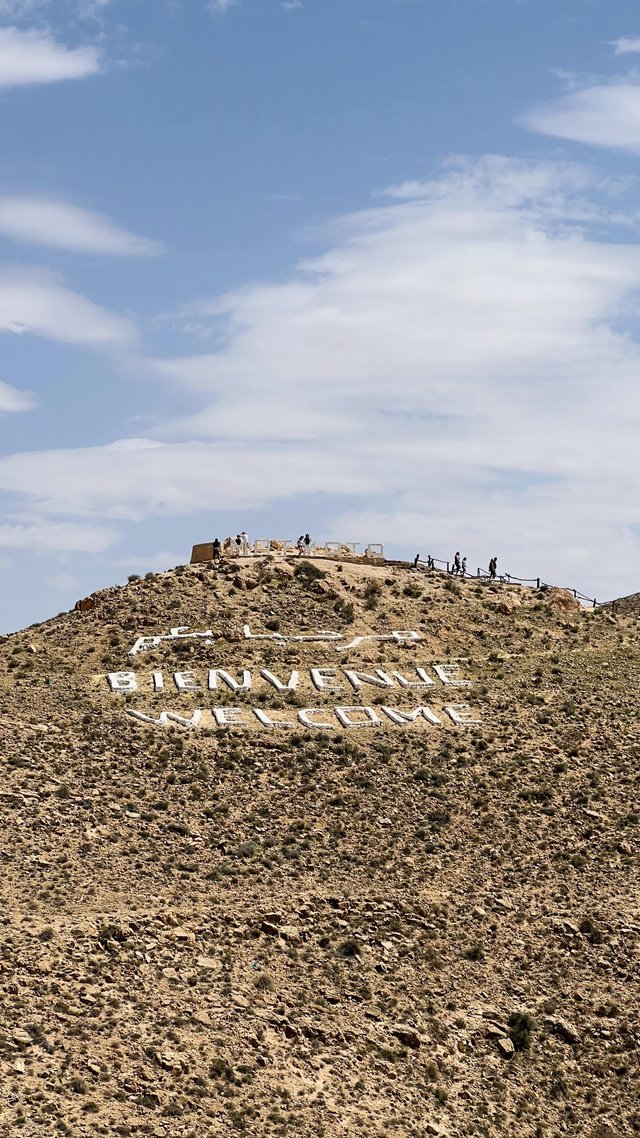
View from above troglodyte courtyards blending into the desert hills.
Entering a Troglodyte Home
A typical troglodyte house opens onto a large circular courtyard dug into the ground. Around this courtyard, rooms are carved directly into the rock living rooms, bedrooms, storage niches, and small stables. Light comes from above, the thick rock walls keep the interior cool in summer and warm in winter.
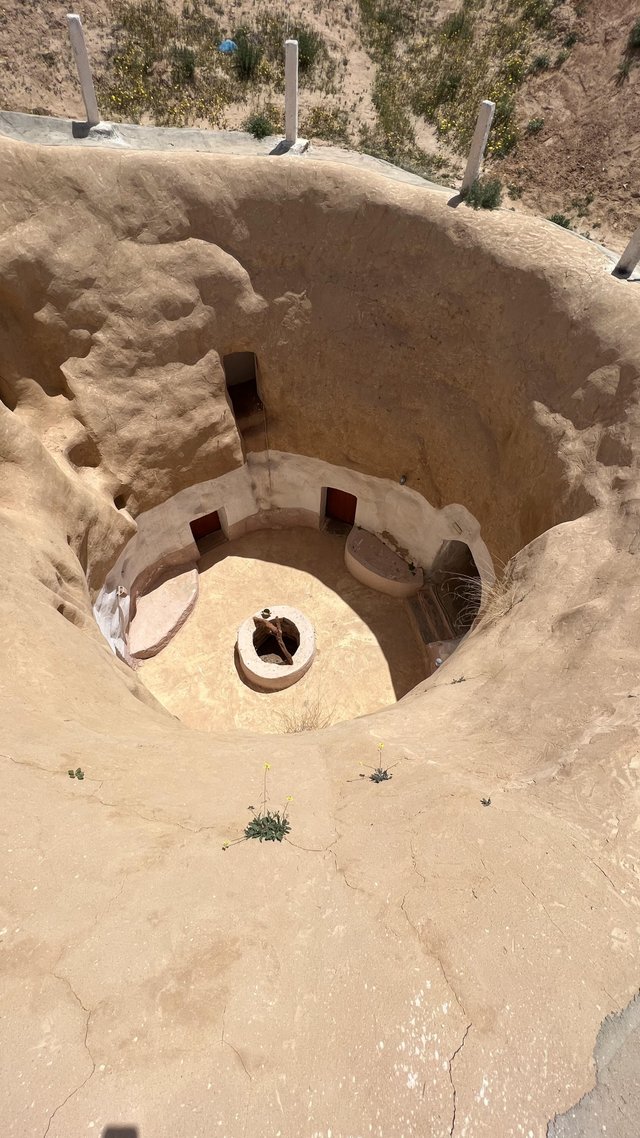
Main courtyard of a troglodyte home, the heart of daily life.
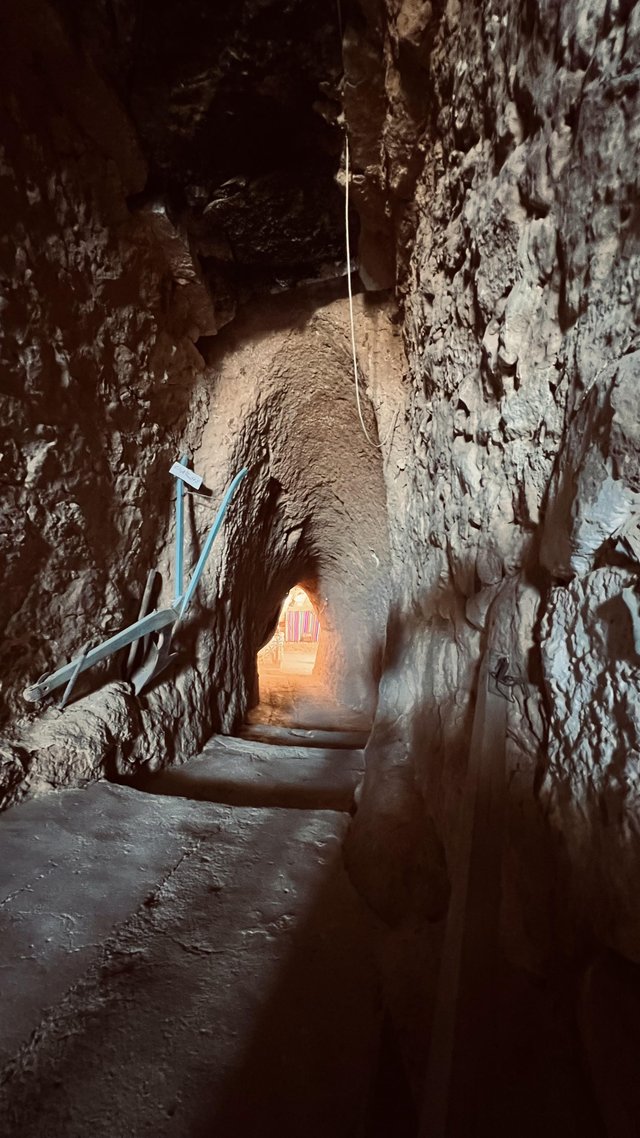 | 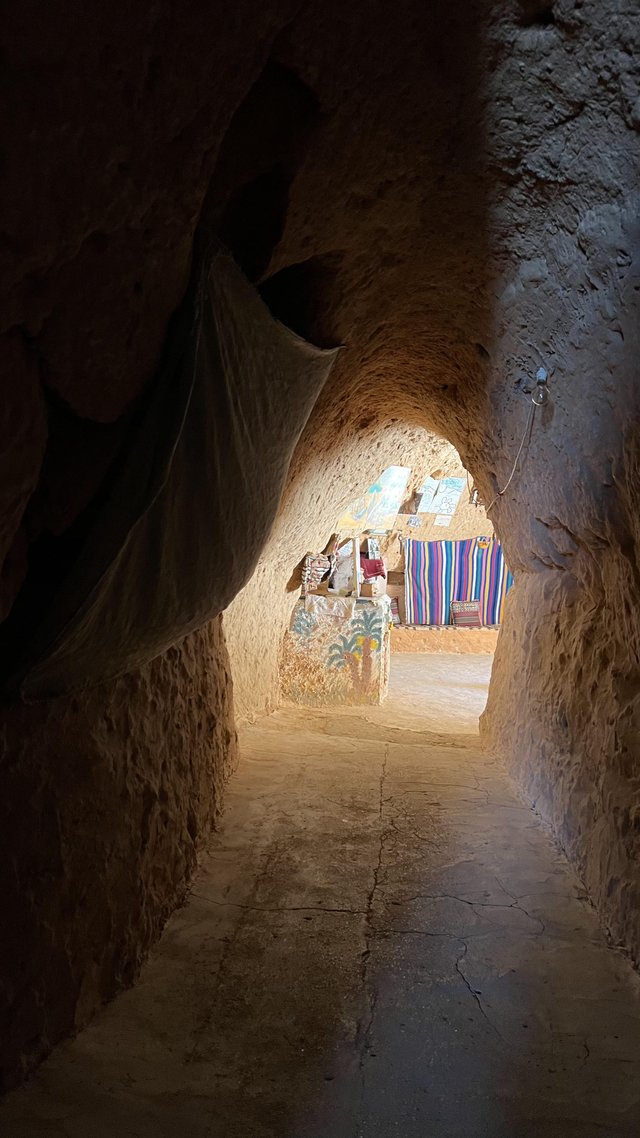 |
|---|
Entrance and carved passageways, rounded forms shaped by generations of hands.
Inside the Troglodyte Home: Rooms, Daily Life & Memory
Entering the troglodyte houses of Matmata feels like stepping into a world where architecture and culture merge. The spaces are carved directly into the rock, with smooth whitewashed walls, rounded ceilings, and niches serving as shelves. Every detail is practical yet full of character.
There are often two main living rooms:
- A large reception room for guests, furnished with woven kilims, low benches, and decorated pottery.
- A simpler family room for daily life, where meals are shared and children play.
I explored bedrooms arranged in traditional style: one showing men’s cultural identity with tools and rugs, and another highlighting women’s life with woven covers, colorful fabrics, and ornaments.
The kitchen is humble but fascinating clay pots, big jars to store provisions, cooking tools, and even an old stone grain mill. These details bring to life the routines of families who adapted to this unique underground world.
At one moment, I paused in the bottom of the living room, sitting quietly and taking in the cool air, the smell of clay, and the calm simplicity of the house.
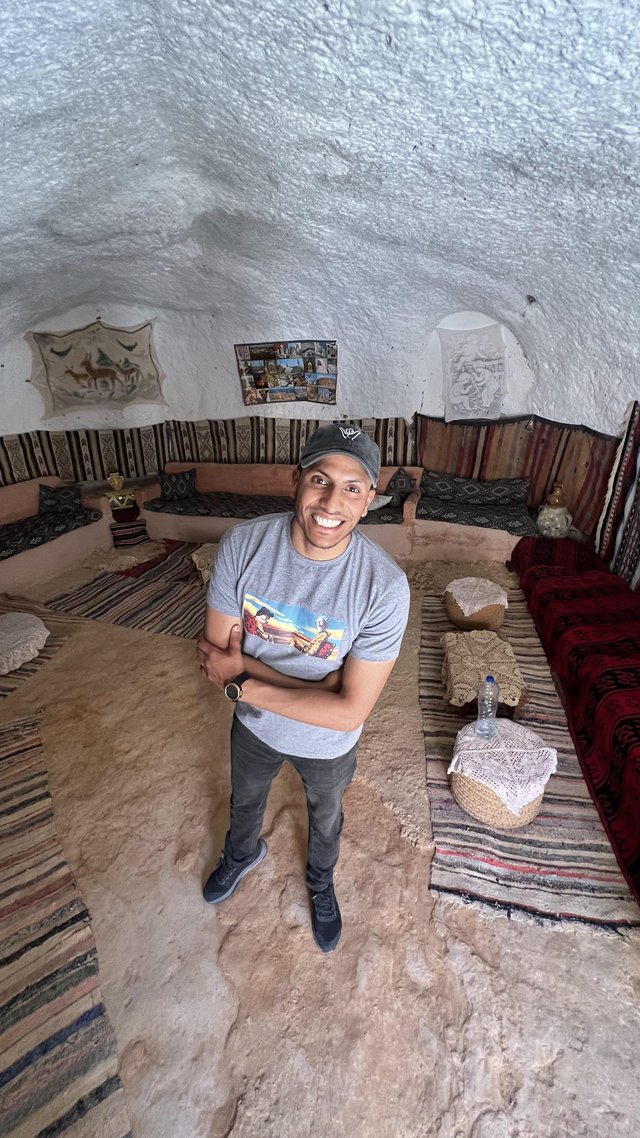
The large living room for special guests, spacious and decorated with woven kilims.
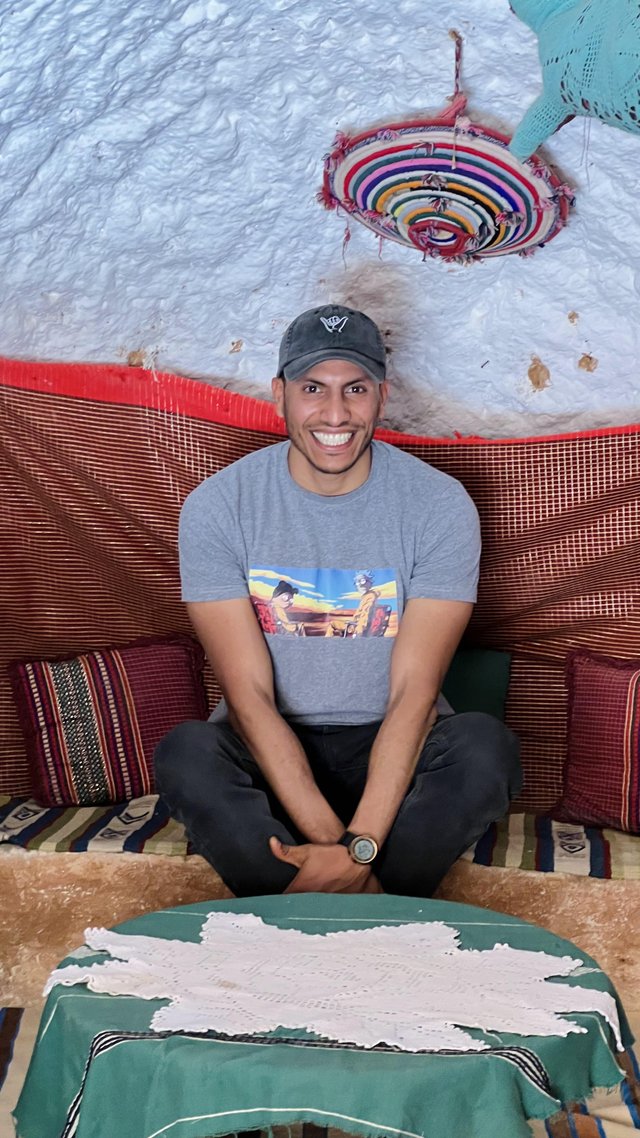
Everyday family living room simple, practical, and welcoming.
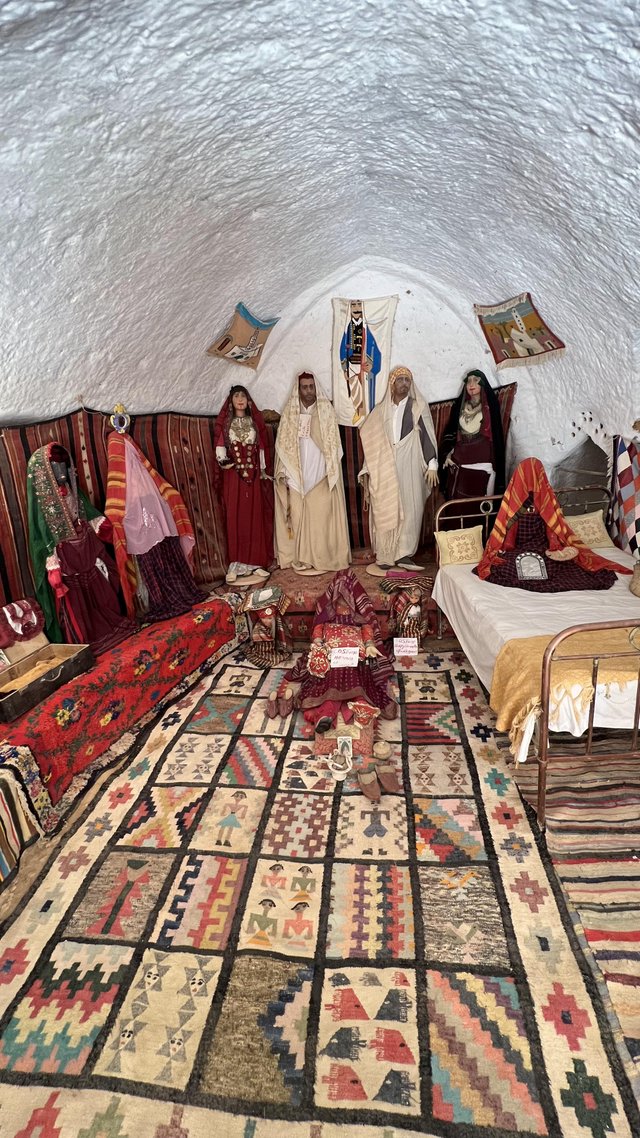 | 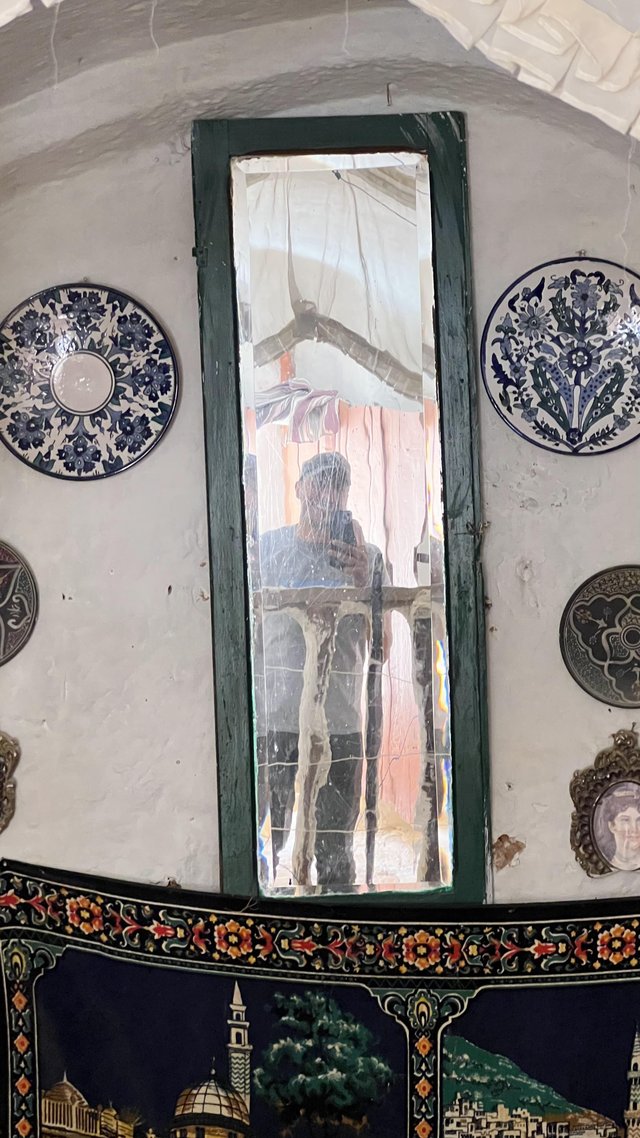 | 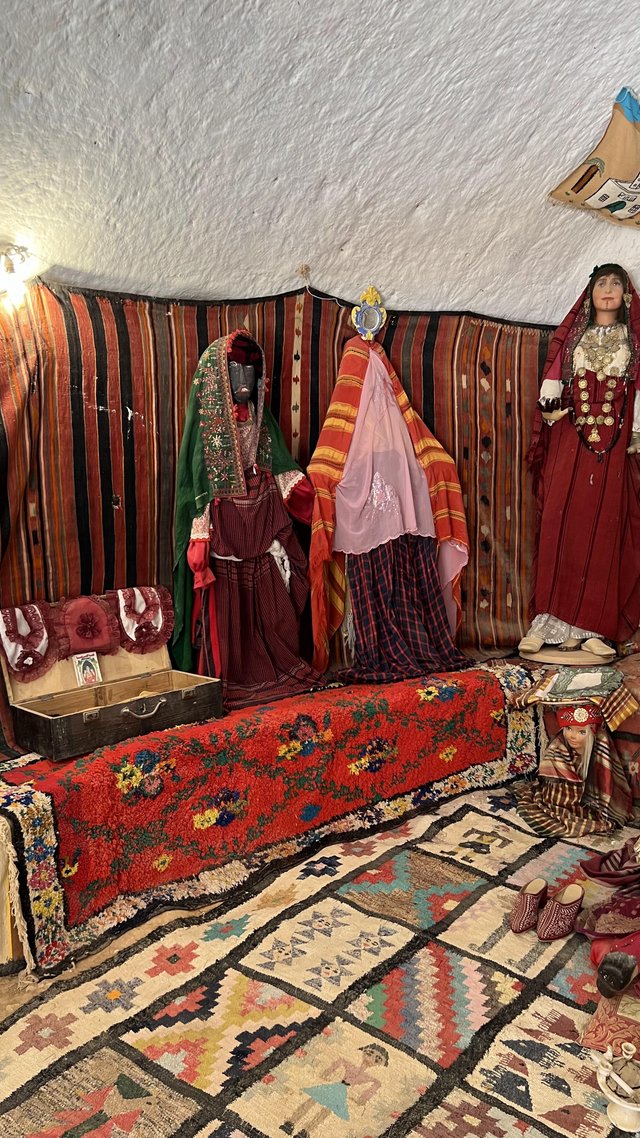 |
|---|
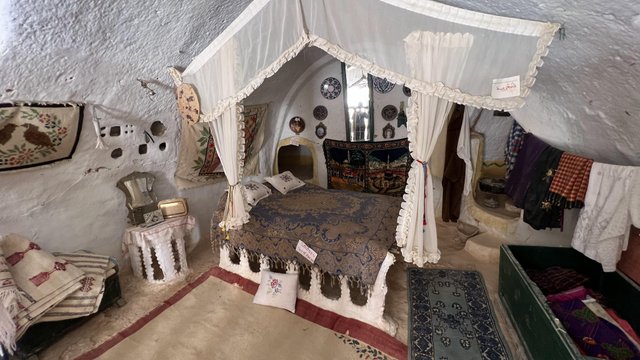
Bedroom styled in men’s traditional way rugs, tools, and cultural objects.
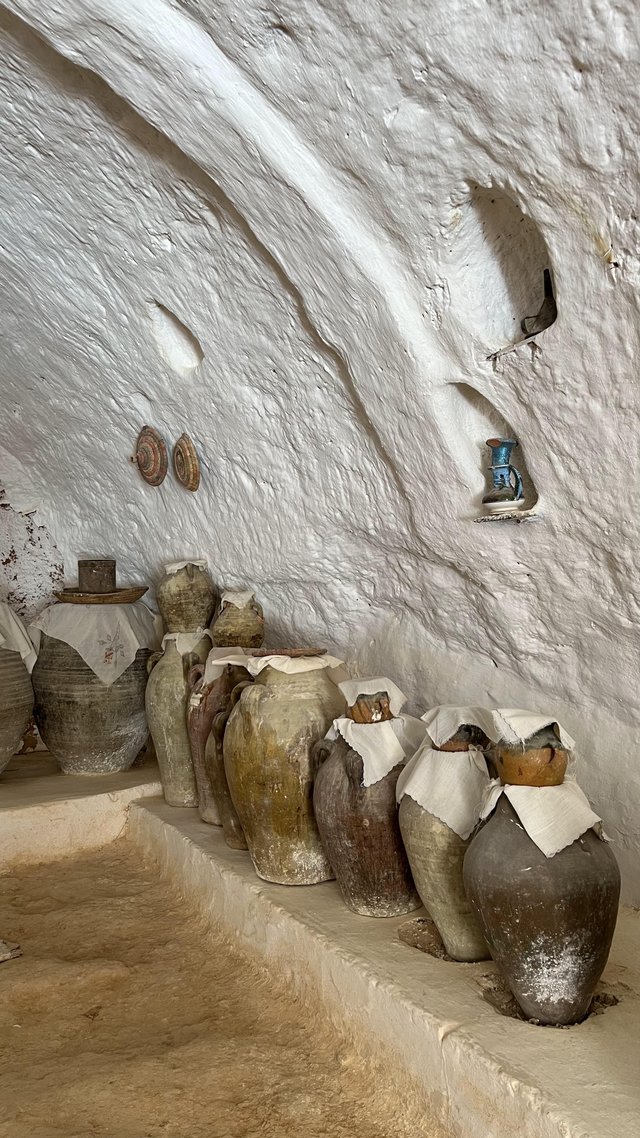 | 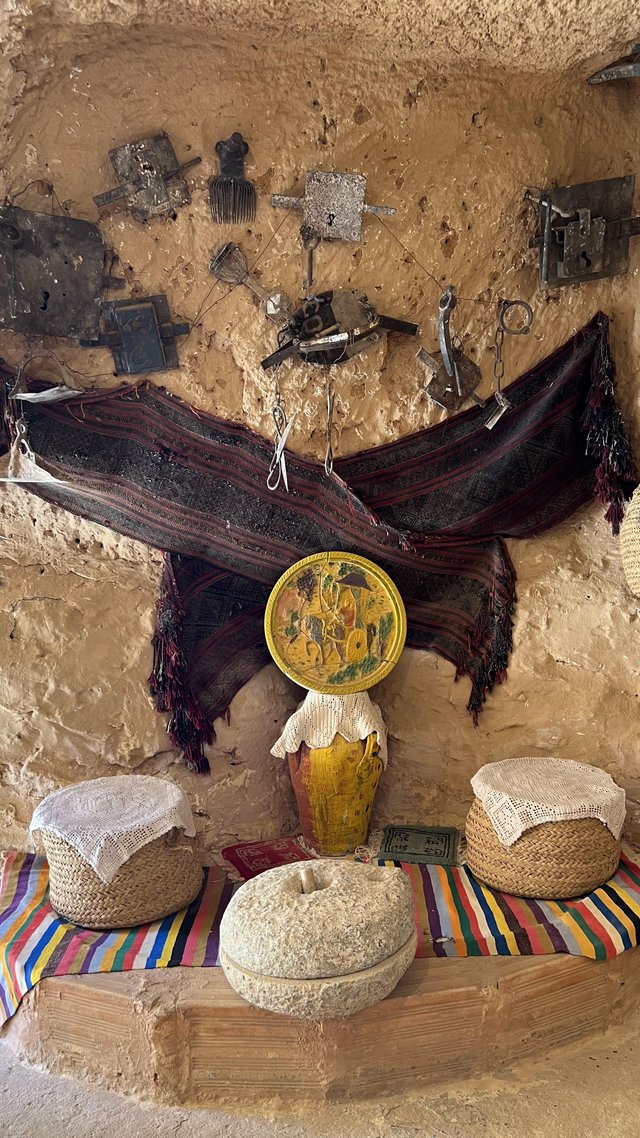 | 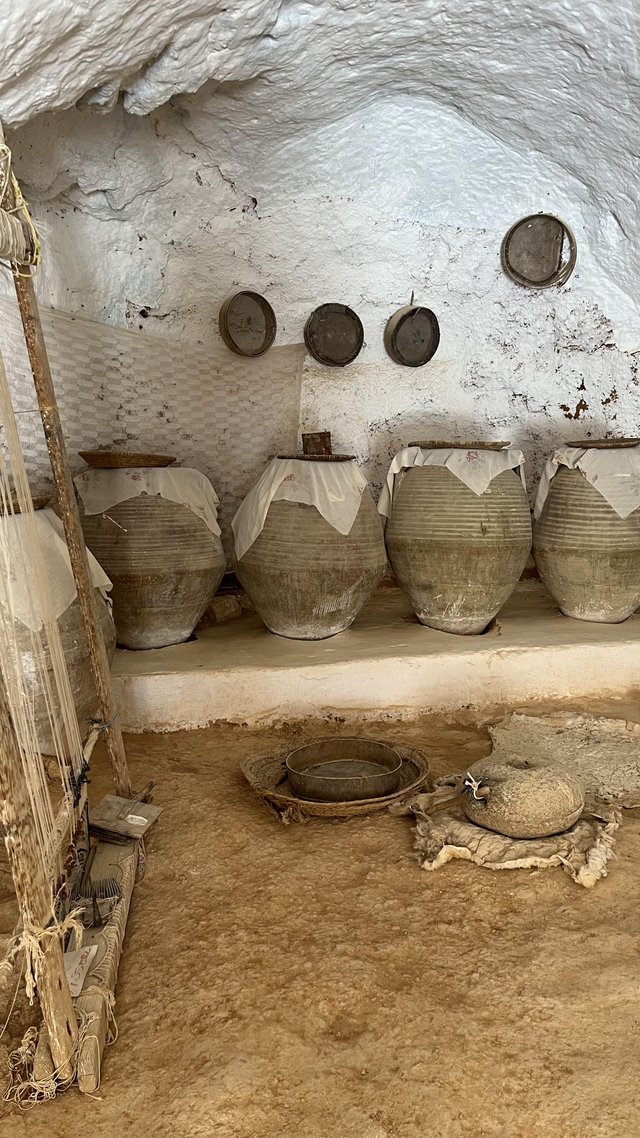 |
|---|

Me taking a pause in the bottom of the living room quiet and cool inside the troglodyte house.
Star Wars, A Quick Look at Tatooine
After exploring the other traditional troglodyte homes, I couldn’t resist taking a quick look at the legendary Star Wars filming site. Hidden in the heart of Matmata, this place became world-famous in 1976 when George Lucas transformed a real troglodyte house into Luke Skywalker’s home on the desert planet Tatooine for Star Wars: Episode IV – A New Hope.
The filming took place at Hotel Sidi Driss, a unique underground dwelling built centuries ago by the local Berber population to adapt to the harsh desert climate. Its carved courtyard, cave-like rooms, and circular architecture were perfect for creating the otherworldly atmosphere of Tatooine.
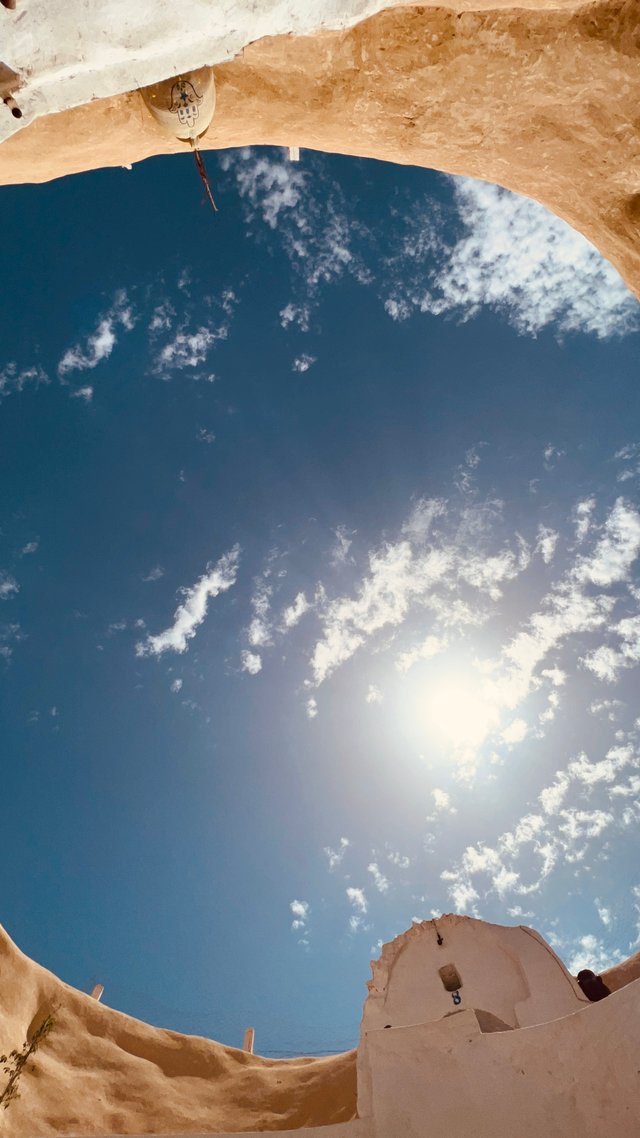 | 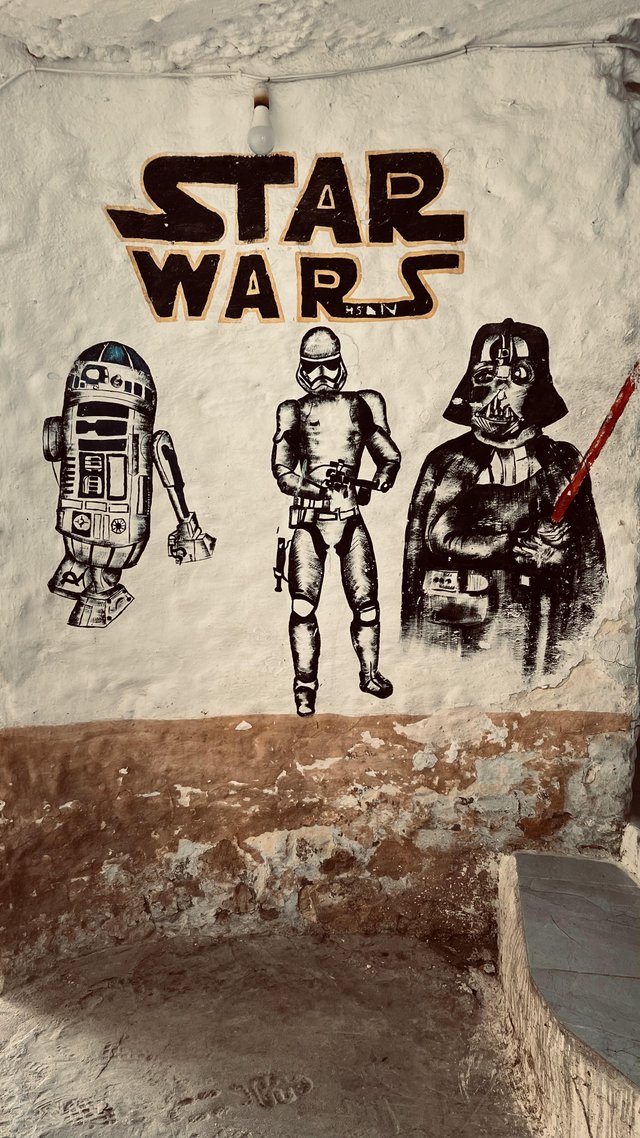 | 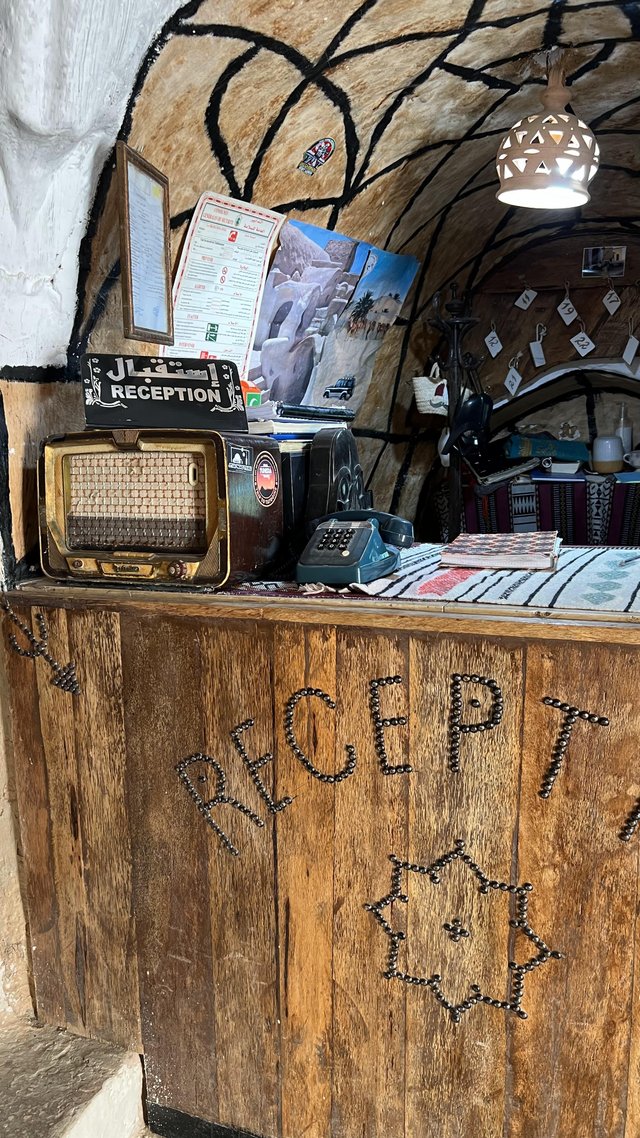 |
|---|
Standing there felt surreal as if I had stepped straight into a galaxy far, far away. Today, visitors can still walk through the same tunnels and rooms seen in the film, and even spend the night at the hotel. It’s a magical stop for both movie lovers and history enthusiasts alike.
Architecture & Materials, Why Troglodyte Homes Work
- Carved from rock: the homes are excavated into soft limestone, creating durable, stable spaces.
- Courtyard design: an open pit gives light and airflow to surrounding rooms.
- Thermal comfort: thick walls and underground rooms maintain steady temperatures year-round.
- Simplicity: everything is multipurpose benches, storage niches, and cooking corners are built in.
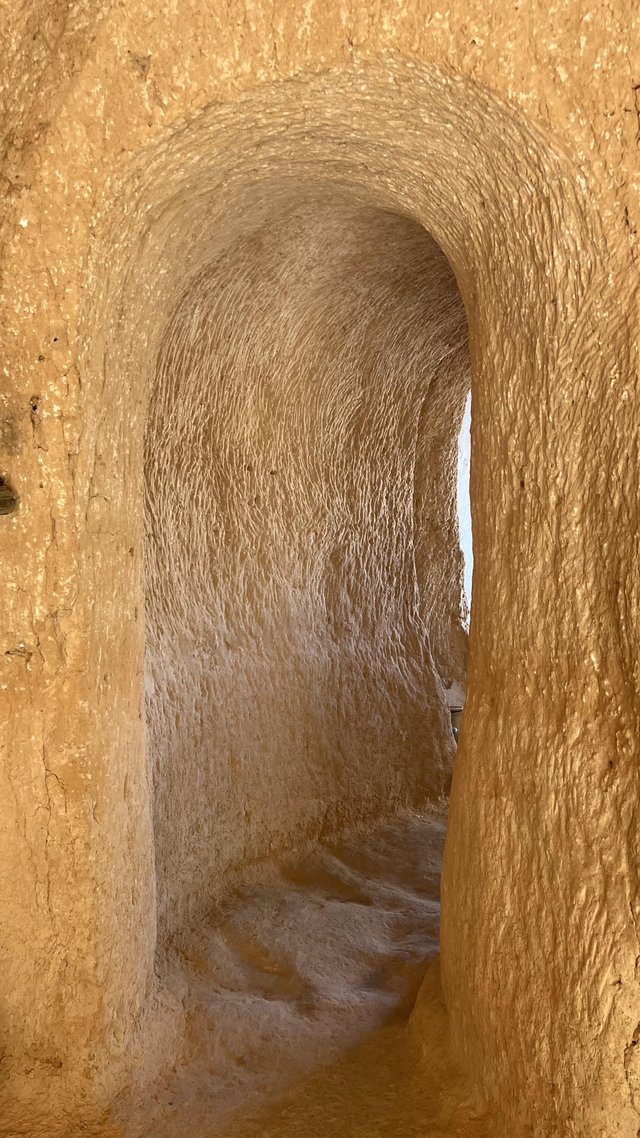 | 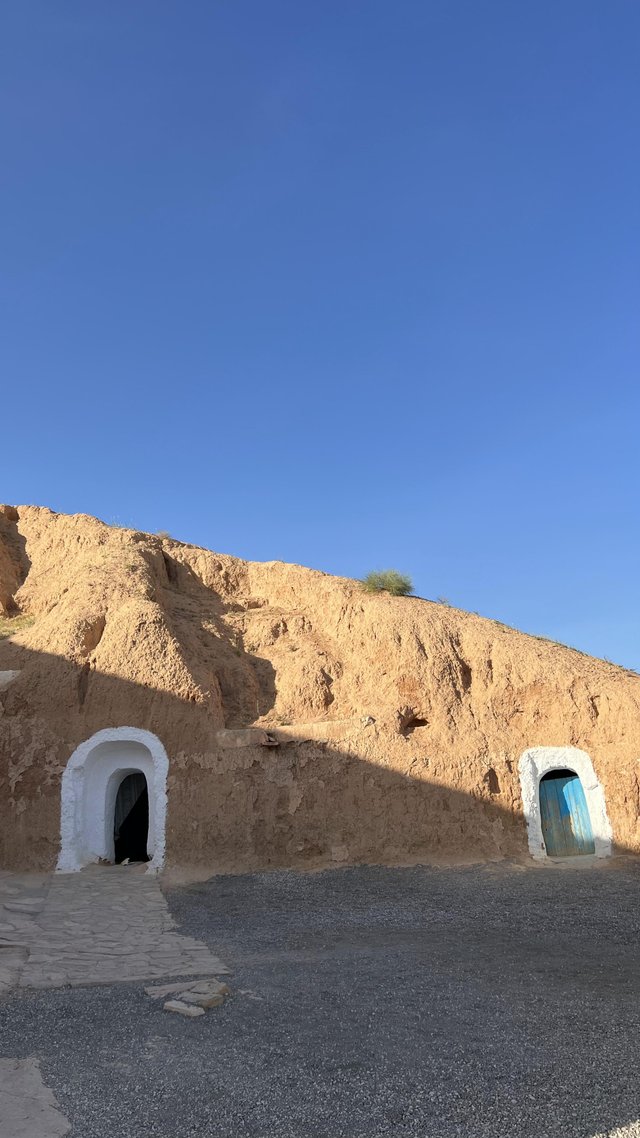 | 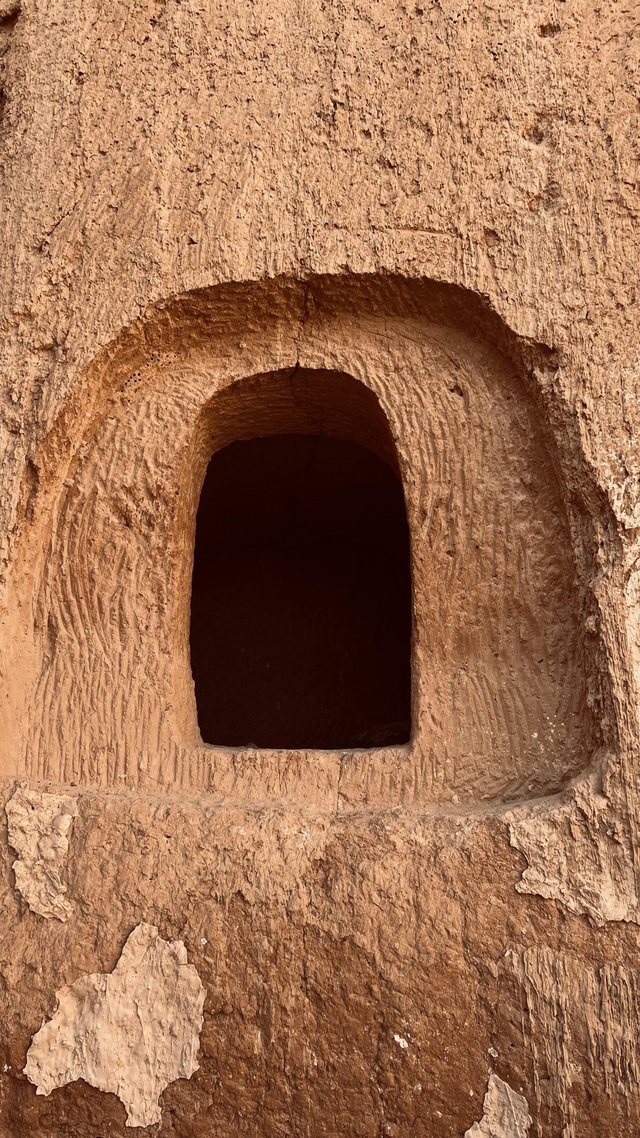 |
|---|
Surrounding Landscape Stones, Valleys & Sky
Matmata is more than houses: the surrounding rocky ridges, dry valleys, and distant dunes frame the troglodyte pits. The landscape feels ancient and quiet a perfect place to think about how people adapt to their environment.
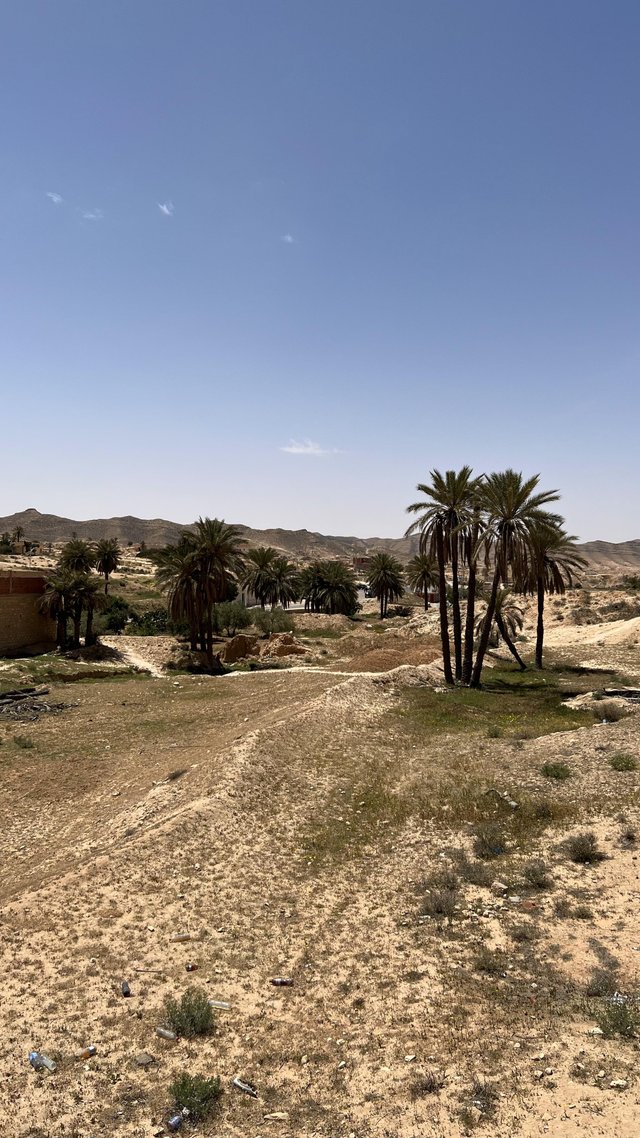 | 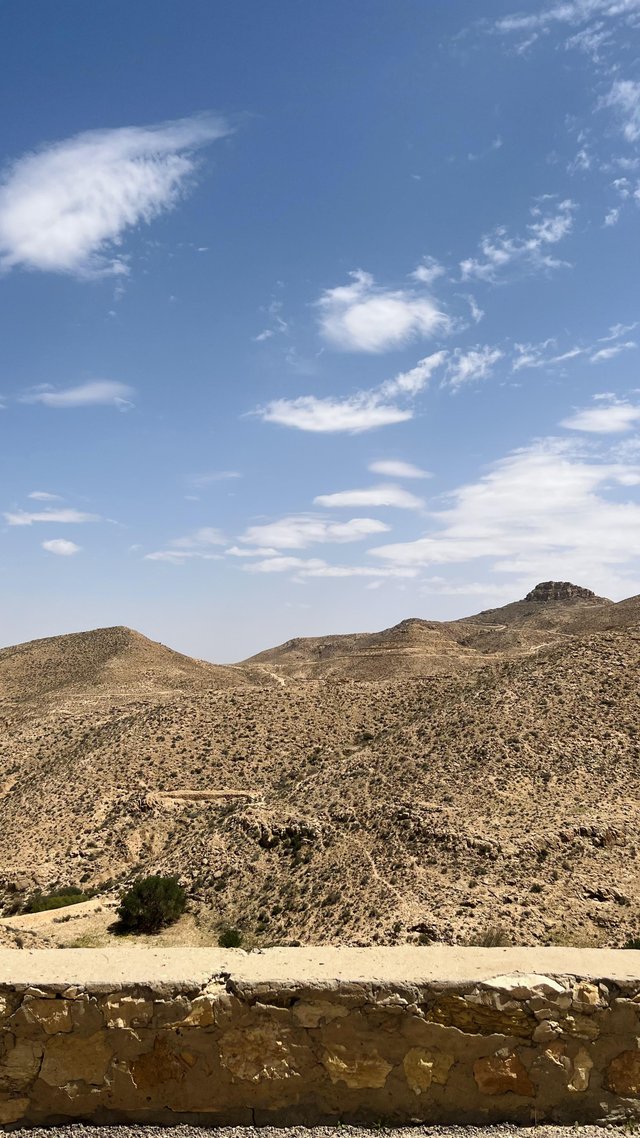 |
|---|
The rocky landscape around Matmata stark, beautiful, and timeless.
Practical Tips & Visitor Info Matmata(Troglodyte Homes)
Location
Matmata an Troglodyte Homes in the Gabes region of southern Tunisia.
Getting there:
| Location | Matmata, Southern Tunisia |
|---|---|
| Plus Code (Google) | GXV9+R36, Matmatat-Al-Qadimal |
| Google Maps | https://maps.app.goo.gl/tJmk4q6bGwTSjyVr7 |
| Atlas Pin Code | [//]:# (!steematlas 33.54472111 lat 9.96758222 long Matmata d3scr) |
| By Car | Drive from Gabès (45–60 min depending on route). Mountain roads are narrow in parts, drive carefully. Parking is available near the village entry. |
| By Public Transport | Shared taxis (louages) run from Gabès but schedules vary, ask locally or arrange a private transfer for more flexibility. |
| Hours & Price | The village is open to visitors, no general entry fee. Guided tours may charge a fee. Respect private homes. |
| Best Time to Visit | Morning to mid-afternoon for cool light and good visibility. Avoid the hottest midday hours in summer. |
| Safety & Etiquette | Wear sturdy shoes for uneven stone floors and steps. Ask permission before entering homes or photographing people. Avoid climbing on fragile walls or roofs. |
| Contacts | Local tourist offices in Gabès can help arrange guides and transfers. |
Tips for Photographers & Travelers
- Use early morning or late afternoon light for the best photos shadows bring out textures.
- Shoot wide to capture the courtyard shape and close-up for niches and pottery.
- Bring water and sun protection, interiors are cool but the walk between sites can be hot.
- If offered tea or a small invitation by locals, accept politely it’s part of the cultural exchange.
Final Thoughts: Why Matmata Matters
Matmata is more than a curiosity, it is an example of human ingenuity. Troglodyte homes demonstrate adaptation, resilience, and a deep connection with place. Walking through an open courtyard or sitting on a low bench inside a carved room, you feel the continuity between past and present.
This visit left me with images of cool stone, soft light, and humble interiors full of memory. In the next post, I will share Food of Gabes: what I ate and where.

Best Regards,
@marwene
Photo Credits: All photos in this post were taken by me, @marwene, using an iPhone 13 Pro Max.
A post that brought back memories and sparked my interest in anthropology. Although as a tourist guide, the post is unmissable from beginning to end.
I found the description of the dwellings in these places very interesting. Are these the so-called Berber tribes?
Great post, my friend.
$upvote60%
Thanks a lot, my friend.
Yes, they’re Berber (Amazigh) tribes.
Glad it brought back good memories.
🎉 Congratulations, @marwene!
Your post A Day in Old Matmata (Exploring Troglodyte Homes) was rewarded by CCS Curation Trail
“Home is where your heart is ❤️.”
👉 Join the CCS Curation Trail | Community Invitation
✅ Vote for visionaer3003 as witness